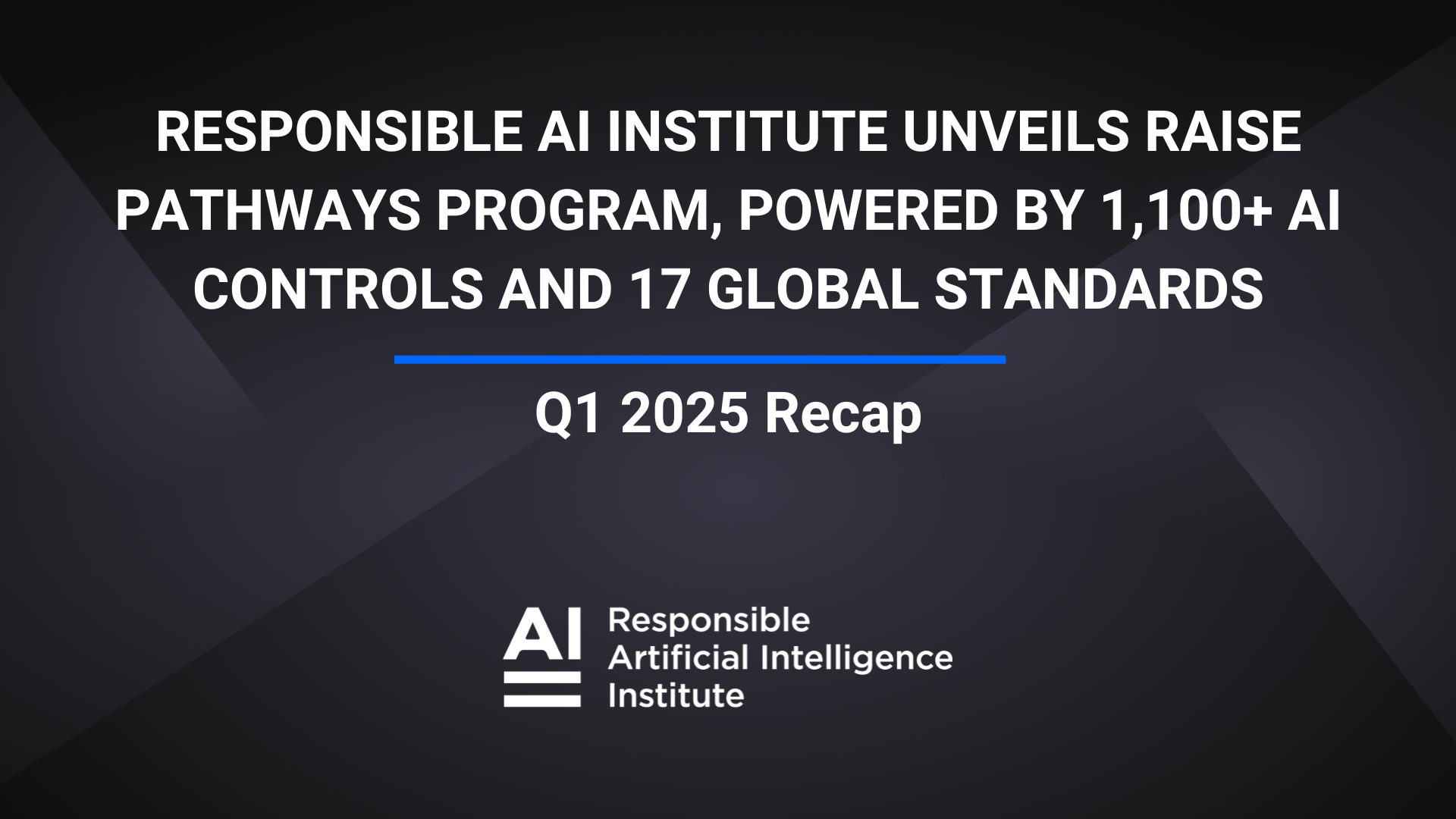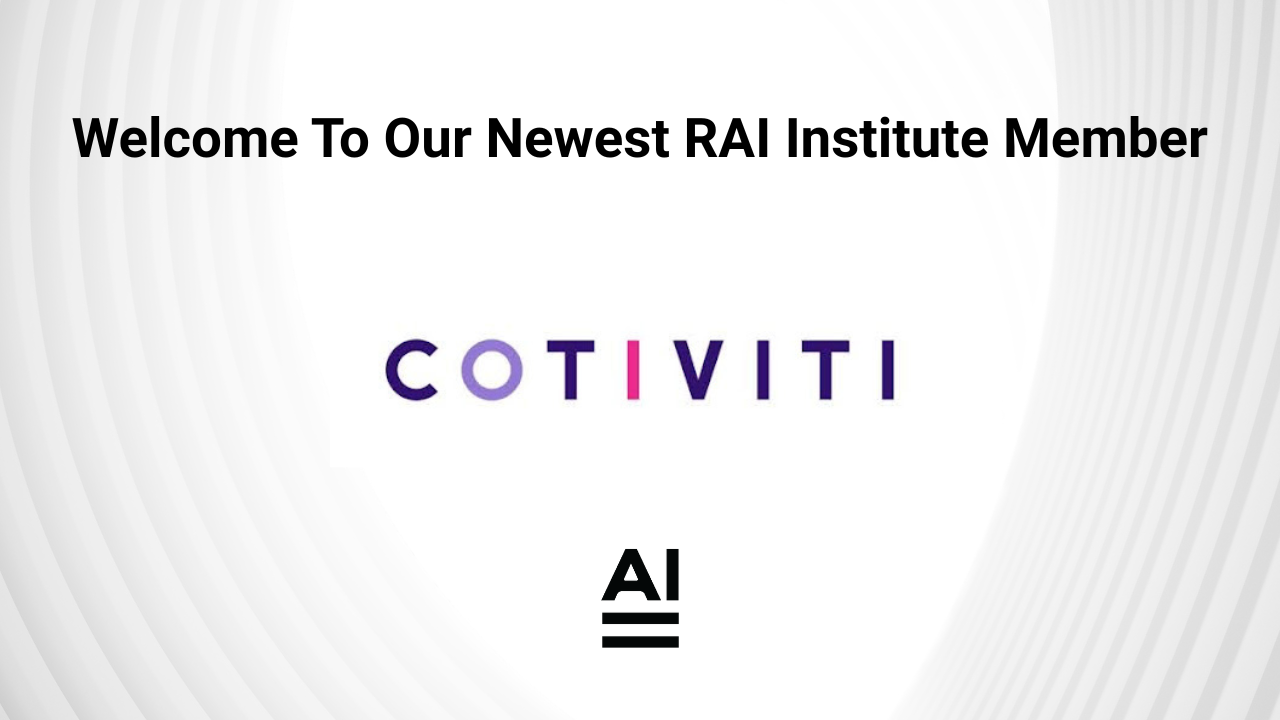Co-Authored by Michael Chapman, Yogasai Gazula, and Hadassah Drukarch
Artificial intelligence (AI) is emerging as a powerful tool in the energy sector, offering unprecedented opportunities for innovation, efficiency, and cost savings across energy supply chains. The market for AI in energy, valued at up to $13 billion, underscores its rapid adoption across supply chains, resource management, and operations. With capabilities ranging from predictive maintenance to renewable energy forecasting, AI has the potential to redefine how energy companies operate and serve their communities.
However, these systems also introduce risks, particularly because they comprise and connect critical infrastructure. While many risks can be mitigated with existing strategies, the emergence of more advanced Generative AI (GenAI) systems amplifies these challenges, necessitating robust guardrails and adherence to responsible AI governance and best practices.
In our latest asset, AI in the Energy Sector: A Strategic Playbook for Responsible Innovation, we have systematically evaluated the use of AI and responsible practices in the energy sector to provide Enterprise AI teams, governance and risk management professionals, and cross-functional organizations with a roadmap for integrating responsible AI practices into energy functions.
The State of Play Around AI Adoption in Energy
The energy sector faces a pivotal moment in its transformation, with AI emerging as a critical driver for innovation, efficiency, and fulfillment of policy goals. According to the IBM Global AI Adoption Index 2023, 74% of surveyed energy and utility stakeholders have implemented AI applications or are considering doing so. Another IBM study on CEO decision-making found that energy and resources CEOs were more likely than peers in other industries to expect benefits from generative AI and automation in the next three years. From internal processes like recruitment to prediction, management, and compliance, AI is beginning to penetrate AI applications along the value chain.
According to the International Energy Agency (IEA) and the European Patent Office (EPO), patents related to AI in power grids have increased sixfold in recent years, with China and the United States leading the way. China’s share of grid-related patents has surged from 7% of the global total in 2013 to 25% in 2022. Most AI-related patents focus on forecasting and decision-making, followed by applications in microgrids, outage management, storage integration, and demand response. This growth builds on a wave of patent activity that began around 2010, driven by software innovations in areas such as electric vehicles and smart meters. Rapid advancements in AI for energy use cases are poised to further transform energy economics, business models, and governance structures.
Energy and AI offer reciprocal challenges; projected demand from datacenters and energy-intensive AI applications threatens to strain electrical grids, while reliable and affordable energy could serve as a bottleneck to AI expansion. Private and public stakeholders are grappling with how to align AI and energy goals, ensuring they reinforce one another rather than creating tension. For example, BlackRock, Microsoft, and AI company MGX recently announced a “Global AI Infrastructure Investment Partnership,” aiming to raise $30 billion for AI infrastructure. The Stargate collaboration recently made waves with OpenAI, SoftBank, Oracle, and MGX announcing a joint venture planning to invest over $500 million in U.S. AI infrastructure.
Meanwhile, electric utilities and others are planning to meet increased demand, while datacenter companies are exploring investments in new energy sources, such as small nuclear reactors. As energy stakeholders, AI companies and governments plan for future needs and attempt to align market forces with policy goals, partnerships and engagements between them will continue to take shape and evolve.
The Imperative for Responsible AI in Energy
Energy is a sector deeply intertwined with public interest considerations such as affordability, reliability, and environmental protection. As a form of critical infrastructure, energy also serves as both a national security asset and an economic cornerstone. With the advent of emerging technologies like smart meters, grid-interactive electric vehicles, and the Internet of Things (IoT), concerns around data privacy and cybersecurity are becoming increasingly pressing. In response, regulators at all levels of government are closely examining how these technologies — particularly AI — may influence public interest outcomes.
Responsible AI practices empower organizations to better understand and manage their AI systems, enabling them to mitigate risks while maximizing benefits. By implementing safeguards, transparent processes, and accountability frameworks, organizations can effectively navigate the fast-evolving technological and regulatory landscape.
The AI in Energy Playbook offers comprehensive guidance for AI applications in the energy sector. It includes broad strategic recommendations as well as practical, use case-specific advice to help organizations address unique challenges and opportunities within this critical industry.
A Framework for Implementing Responsible AI across Energy Use Cases
Global research and policies have just begun recognizing the close tie between AI and energy, seeking synergies. The European Commission has identified the “twin transition,” which views progress toward clean energy and AI as parallel and mutually reinforcing. In a report offering a blueprint for “Greening AI,” researchers with the Tony Blair Institute for Global Change recommend policies such as reporting on energy consumption across the AI value chain, creating a green-AI certification scheme, investing in alternative energy sources like geothermal and nuclear, and fostering international collaboration.
At the government level, the U.S. Department of Energy (DOE) shows how governments might embrace AI research and development. The DOE directly participates in AI development through its national laboratories and world-class supercomputers. While opining on other AI-in-energy issues, it has recently established an initiative on Frontiers in Artificial Intelligence for Science, Security and Technology (FASST), which seeks to leverage its national laboratories, external partnerships, and other resources to build a “national AI capability.”
Although global AI regulation is still evolving, one could imagine governmental or multilateral entities incorporating energy goals into their broader AI frameworks alongside investments in national capacity. For example, they could build in energy-intensity reporting or establish certifications surrounding the types of energy used. Alternatively, energy policies such as reliability standards could incorporate restrictions for AI applications to ensure that AI does not compromise energy or security goals.
Given this state of uncertainty, the AI in Energy Playbook leverages existing regulations and cross-industry insights to identify four key themes likely to shape future oversight:
Transparency and Accountability
The extensive “paper trail” requirements in current energy regulations highlight the importance of detailed documentation and explainability. Decisions must be justified with the public interest in mind, supported by structured and auditable processes that ensure transparency and accountability.
Risk Mitigation and Safety
Energy industries operate with significant physical and environmental stakes, making rigorous safety standards essential. These could include extensive testing, validation, and human oversight. Lessons from other heavily regulated sectors, such as aviation and pharmaceuticals, may provide valuable guidance for developing safety standards tailored to energy.
Evolving Market Dynamics
AI is poised to reshape energy markets, influencing how energy is traded and which resources utilities prioritize. Algorithmic trading, already under scrutiny in some jurisdictions, may serve as a precedent for regulatory focus on automated practices in energy markets.
Data Privacy and Cybersecurity
The proliferation of data-intensive technologies, from smart meters to connected vehicles, introduces new vulnerabilities to cyberattacks and privacy breaches. The EU AI Act, for example, categorizes critical infrastructure as “high risk,” imposing stringent requirements. Energy organizations adopting AI must establish robust data governance practices and prioritize cybersecurity to mitigate these risks.
Given the compelling public interest considerations at stake, regulators are likely to closely scrutinize AI applications in the energy sector. Insights from safety-conscious industries like healthcare and aviation could inform the development of best practices and regulatory frameworks. For energy organizations, staying attuned to evolving policies in both AI and energy — along with their intersection — will be critical for navigating this dynamic landscape. By examining AI initiatives in energy through the lens of sustainability, responsible use, and societal impact, organizations can align technological advancements within their own missions, as well as broader ESG objectives.
Key Considerations across Energy Use Cases
The Responsible AI in Energy Playbook categorizes energy use cases into three primary areas: supply, resource management, and operations. Each category highlights critical questions and actionable steps that organizations can take to harness the potential of AI while addressing the unique challenges of the energy sector.
The supply category focuses on the sourcing and production of energy. Key use cases include oil and gas exploration, mining, energy trading, the search for clean energy solutions, and predictive maintenance. These areas are pivotal to ensuring the efficient and sustainable production of energy, with AI playing a critical role in optimizing resource discovery, minimizing costs, and enhancing predictive capabilities.
Resource management encompasses energy delivery and grid-level activities. This category addresses use cases such as autonomous plants with real-time control, energy storage solutions, smart grids, demand response systems, and renewable forecasting. These innovations aim to improve grid reliability, enhance energy storage efficiency, and support the integration of renewable energy sources. By leveraging AI, organizations can better manage energy distribution, anticipate demand, and ensure system resilience.
Operations, the third category, focuses on internal workflows and the management of people and processes. Use cases include supply chain optimization, the development of operational knowledge bases, and improving customer relations. These applications enhance organizational efficiency, streamline workflows, and foster stronger connections with customers through AI-driven insights and automation.
Across all three categories, several key trends have emerged. Robust data governance stands out as a critical requirement. To ensure that AI operates effectively and ethically, datasets must be unbiased, secure, and accurate. Organizations must also protect their internal data from risks such as cyberattacks, data poisoning, and other vulnerabilities.
Human-in-the-loop practices are equally important for maintaining accountability and safeguarding decision-making processes. This approach requires a workforce equipped with the skills and literacy needed to understand AI systems, their operations, and the recommendations they generate. By combining human oversight with AI-driven capabilities, organizations can ensure responsible and informed decision-making.
Transparency and accountability form the foundation for the continuous evaluation, risk assessment, and improvement of AI systems. Designing systems that are understandable and human-readable, rather than relying on opaque “black box” algorithms, is essential for building trust and promoting accessibility.
The AI in Energy Playbook serves as more than a guide; it is geared towards cross-functional AI practitioners in energy companies and serves as a resource for them at any stage of the AI development process within energy companies, whether they are just beginning to explore AI use cases or are actively deploying specific applications. Responsible AI practices empower organizations to optimize solutions in ways that align with public interest considerations, mitigate risks, and ensure compliance. These practices also enhance organizational security, positioning energy companies to lead in a rapidly evolving technological and regulatory landscape.
AI holds transformative potential for organizations throughout the energy ecosystem, but its success depends on the thoughtful integration of rigorous safeguards and conscientious practices. By adopting responsible AI, organizations can solidify trust among stakeholders, leverage cutting-edge technologies, and demonstrate to regulators how innovation can drive public goals.
Gain Access to the AI in Energy Playbook
Supporting Your Responsible AI Journey
The Responsible AI (RAI) Institute remains strategically focused on critical technology sectors, including the energy industry. Collaborating with leading energy companies operating across jurisdictions, RAI Institute provides tools, assessments, and implementation guidance tailored to organizations at all stages of AI adoption maturity. This specialized focus on AI applications in the energy sector has led to the development of sector-specific resources, including our upcoming guidance on challenges, risk considerations and practical ways of working around maintaining a comprehensive inventory of AI use cases. By combining practical tools, targeted resources, and opportunities for dialogue, we continue to advance responsible AI adoption and innovation across the energy sector.
About the Responsible AI Institute
Since 2016, Responsible AI Institute (RAI Institute) has been at the forefront of advancing responsible AI adoption across industries. As a non-profit organization, RAI Institute partners with policymakers, industry leaders, and technology providers to develop responsible AI benchmarks, governance frameworks, and best practices. RAI Institute equips organizations with expert-led training, real-time assessments, and implementation toolkits to strengthen AI governance, enhance transparency, and drive innovation at scale.
Members include leading companies such as Boston Consulting Group, Genpact, KPMG, Kennedys, Ally, ATB Financial and many others dedicated to bringing responsible AI to all industry sectors.

Media Contact
Nicole McCaffrey
Head of Strategy & Marketing, RAI Institute
+1 (440) 785-3588
Connect with RAI Institute




